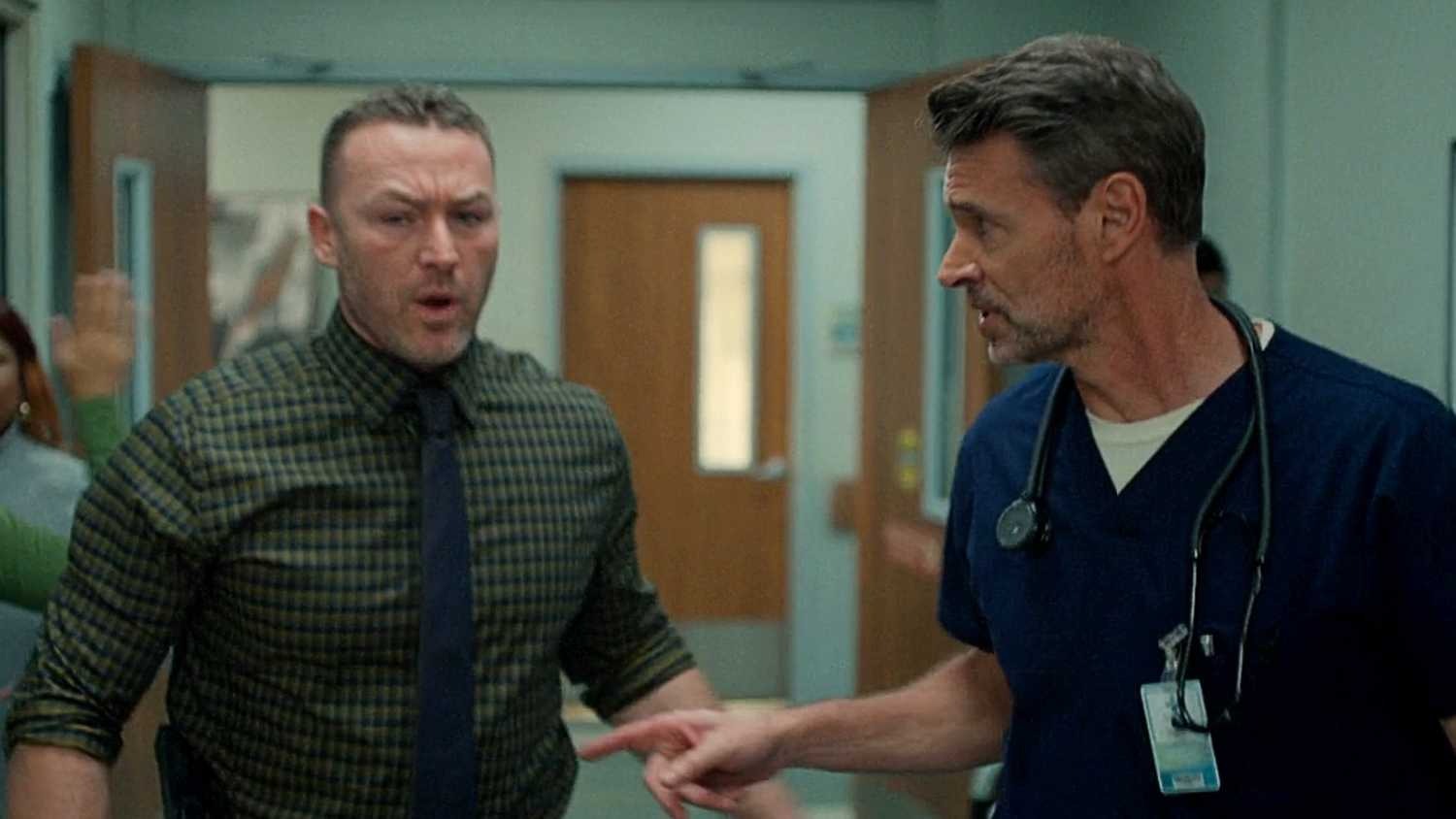Network procedurals have trained me to be skeptical whenever a charming new character arrives. Too often, a fresh face means a twist or a quiet setup for tragedy. That is why Dr. Seth McDale, played with warmth and wit by Scott Foley, caught me off guard on Will Trent. He slipped into the show’s rhythm with ease, became a thoughtful partner for Angie Polaski, and gave the series new storytelling lanes inside the hospital. Now, as Season 3 barrels toward its finale, all signs suggest that the character who has been so good for Angie might be the one the series takes from her.
The Cliffhanger That Put Everyone in Peril
The penultimate episode ended with a pulse-spiking crisis: a biological weapon was released inside the hospital where Seth works, trapping him alongside Michael Ormewood, Nico, and the fandom’s favorite chihuahua, Betty. It is exactly the kind of high-stakes setup that procedurals use to deliver an emotional gut punch in the finale. Add to that earlier hints from Erika Christensen and you can feel the drumbeat toward a major loss.
As a viewer, I have been here before. A beloved show raises the stakes, puts multiple characters in danger, and then takes a leap that reshapes the ensemble. The question is not whether Will Trent will pull the trigger on a big death, but who the series can lose without breaking its tonal balance or derailing its core arcs.

Why Seth Feels Like the Most Likely Casualty
When you line up the possibilities, Seth is the character whose death would hurt the most while still making narrative sense. Killing Nico or Betty would feel off-brand for a show that blends darkness with heart and humor. The series navigates heavy subject matter, but it also regards compassion and redemption as fuel. Taking out either Nico or a dog that has become an emotional anchor would tip the scale to bleakness without offering satisfying story momentum.
What about Ormewood A death at work would be devastating, especially in light of his ongoing brain tumor storyline. But because that arc already foregrounds fragility and fear, abruptly ending it in this way could feel punishing, not purposeful. The writers have been careful with Ormewood; simply extinguishing him at this moment would close doors rather than open them.
That brings the spotlight back to Seth. He is not a throwaway character, but he is also not a core original. He matters to Angie and to Will, he connects naturally to the hospital setting, and he is deeply likable. That combination makes his loss both powerful and feasible. It would reverberate across the ensemble while preserving the show’s foundation.
How Seth’s Arc Quietly Set Up Heartbreak
From his first scenes, Seth felt intentional. A widower and a doctor with his own recovery history, he reflects Angie’s struggles and offers a healthier partner than she has known. He is patient, funny, and grounded. He also gives Will a reason to navigate hospital corridors and confront new kinds of moral dilemmas.
And yet there has been a too-good-to-be-true quality to his run. As someone who devours procedurals, I initially assumed Seth was a narrative bridge: the perfect boyfriend Angie could not fully embrace, a relationship built to end so she and Will could gravitationally drift back together. But the writing kept deepening Seth instead of flattening him, foregrounding his kindness and calm under pressure. In hindsight, that care feels like preparation for a loss the audience will truly feel.
The Pregnancy Twist Raises the Stakes
The recent reveal that Angie is pregnant sharpened everything. She and Seth appear to want the baby, while he is clear that it is her decision. That nuance matters, especially in the wake of Angie’s harrowing reckoning with her late mother, played by Molly Price. Angie’s history makes motherhood both a hope and a fear. It is exactly the kind of conflicted emotional ground that Will Trent explores best.
If Seth dies in the finale, the show instantly has a weighty, character-driven track for Season 4. It would be agonizing to lose him, but it would not be empty shock value. The loss would intersect with Angie’s recovery, her evolving sense of family, and the complicated tether that still connects her to Will.
What Seth’s Death Would Set in Motion for Season 4
Angie’s Sobriety and the Shape of Grief
Angie recently stumbled in her sobriety after confronting the truth of her childhood and enduring the fresh grief of her mother’s death. She stopped drinking again, choosing to let go rather than spiral. If she loses Seth, she will be forced to carry that grief carefully, not only for herself but for the life she is carrying. Sobriety would become both shield and responsibility. The show could track the day-to-day work of staying sober while planning for a future that looks nothing like the one she imagined.
Will’s Role and the Team’s Emotional Fallout
Will, played by Ramón Rodríguez, would inevitably be drawn into the aftermath. That does not have to mean a fast track back to romance, but it does create a natural arc where Will becomes part of Angie’s support system in tangible ways. Co-parenting questions, guardianship decisions, and the moral knots of grief could pull them together while testing their boundaries. Meanwhile, Ormewood, who is already staring down his own mortality, would have to process survivor’s guilt if he makes it out of the hospital alive. Nico’s perspective and Betty’s near-miss would add grounding and light within the heaviness.
On the plot side, a hospital bioweapon attack begs for follow-through. The finale could seed an ongoing investigation that threads through early Season 4, allowing Will and the team to chase the source while they navigate the human cost. Seth’s absence would be felt in every hallway where he once steadied the chaos.
Could the Show Spare Him The Slim Case for Hope
There is a version where the series subverts expectations and spares Seth. Maybe the writers turn the cliffhanger into a scare rather than a body count, or they shift the tragedy toward a character adjacent to the core team. It is not impossible. Will Trent values hope as much as consequences, and Scott Foley’s easy chemistry with Erika Christensen is a genuine asset. Keeping Seth would allow the show to explore a rarely seen lane on network TV a mature, supportive relationship that lasts.
Still, the arithmetic of drama points toward loss. A season-ending tragedy that is heartbreaking yet survivable for the ensemble, that generates meaningful story for multiple characters, and that stays true to the show’s tone almost inevitably circles back to Seth.
Why This Matters
Speculating on character deaths is never about wishing them away; it is about reading the storytelling signals. Will Trent has built a third season around trauma, healing, and the cost of carrying both. A shocking death in the finale would underline those themes and set up a Season 4 grounded not in nihilism, but in recovery, family, and the messy resilience of starting again.
I will be heartbroken if the finale claims Seth McDale. He has been a gentle engine for growth, especially for Angie. But if the show takes that step, the aftermath could be some of the richest character work Will Trent has done yet. And if he survives against the odds, I will gladly be wrong.
